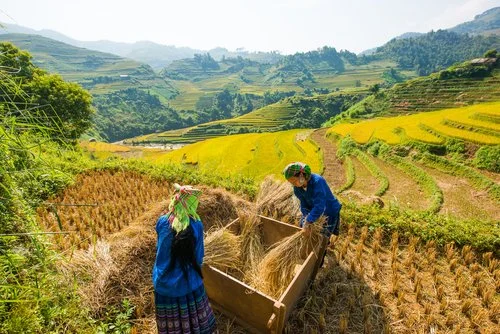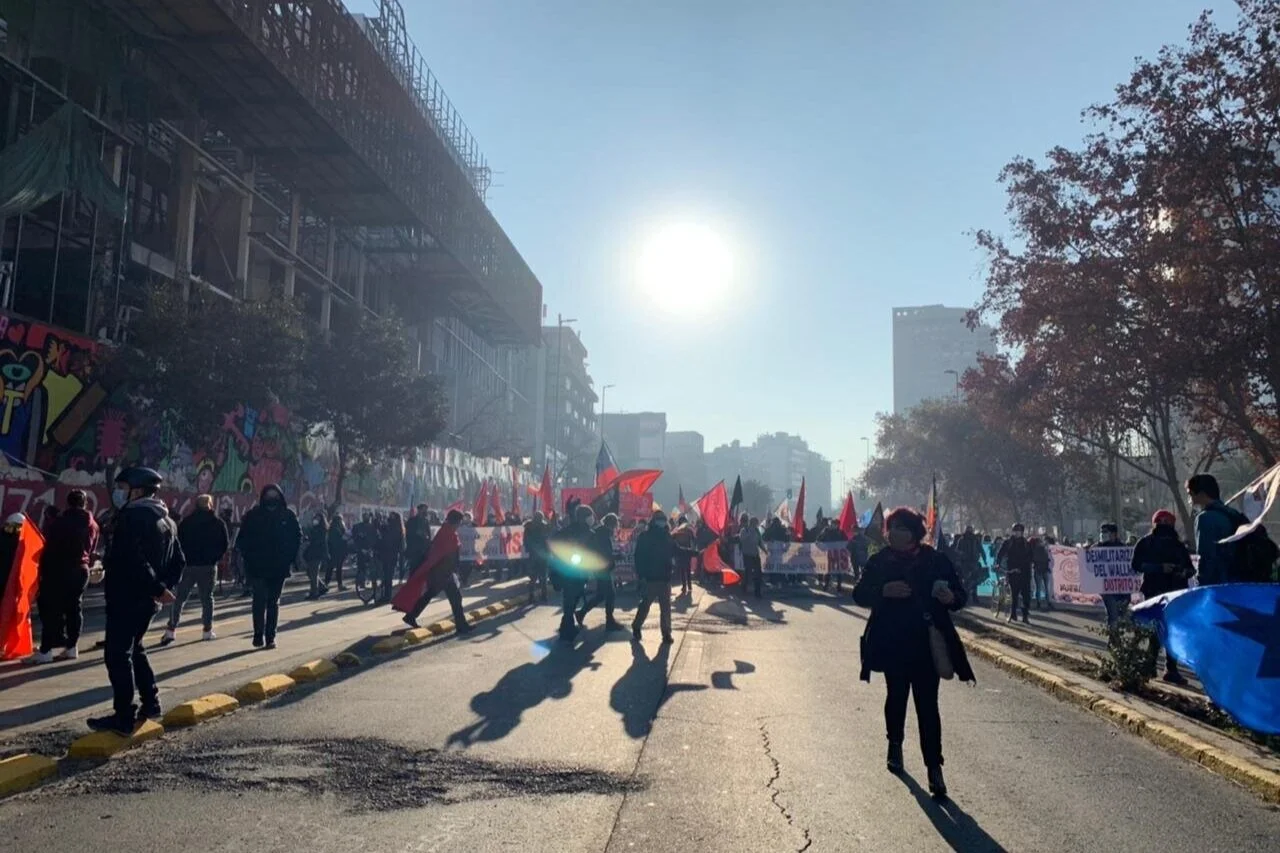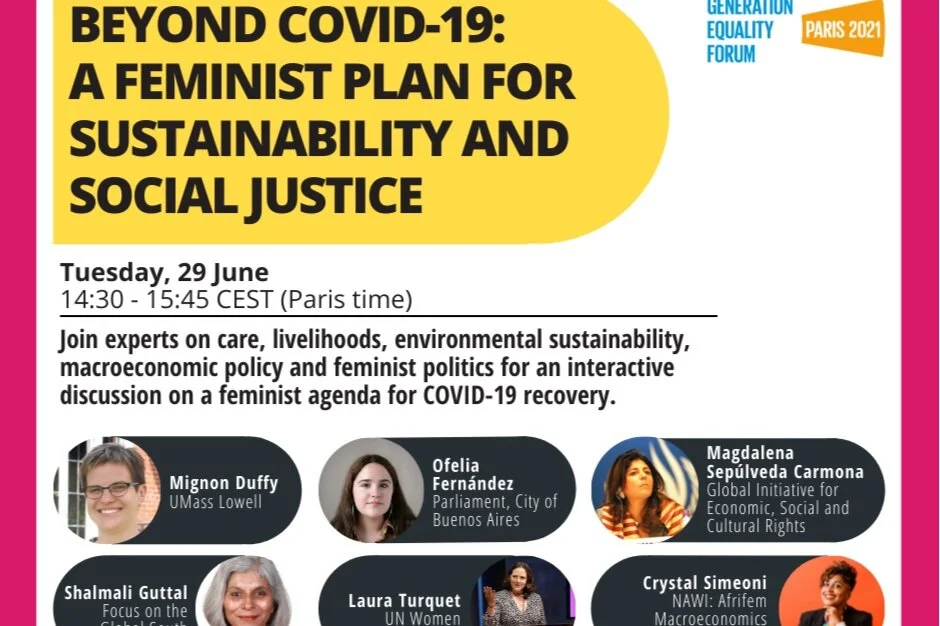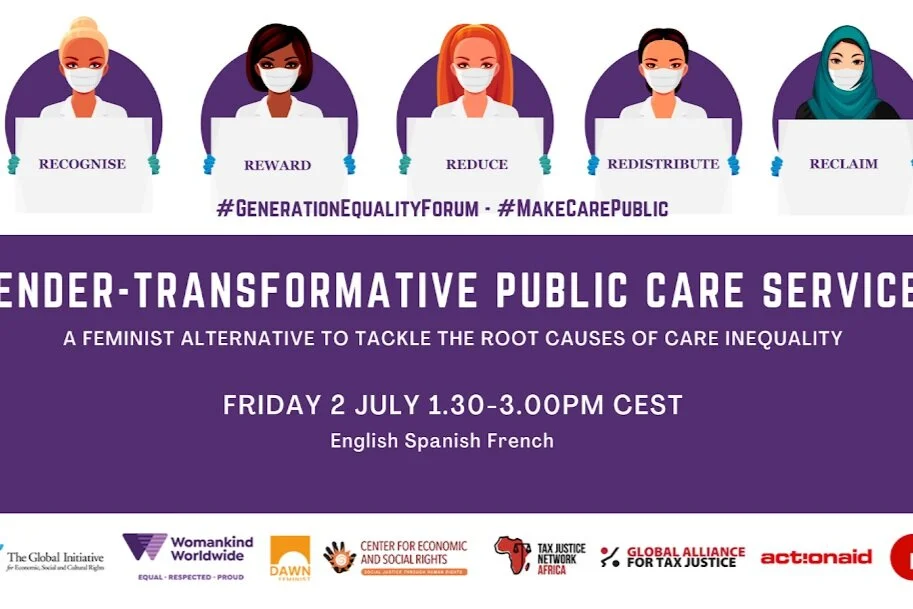Issue
In many parts of the world, women’s basic rights to land and productive resources continue to be systematically denied. They are denied in law, but even more so in practice, leaving women dependent almost entirely upon the men in their lives for their most basic economic survival.
Women’s inability to access, use and control land productive resources on an equal basis with men entrenches women’s poverty, but it also reinforces gender inequality and relegates women to a subjugated position within their families, communities and societies – both socially and economically.
GI-ESCR works to consolidate, strengthen and advance a progressive framework related to economic, social and cultural rights.
Our Approach
Our work builds upon past successes to continually advance women’s rights by strengthening the normative framework protecting these rights, with a particular focus on Africa, and prioritises partnership with national civil society organisations in achievement of goals.
Our work in this area focuses specifically on 5 areas of work:
(1) Utilising strategic spaces at international and regional levels to advance these rights, with a special focus on human rights treaty bodies of the United Nations and the African Commission on Human and Peoples’ Rights (ACHPR);
+ Read more
(2) Strengthening partnerships and networks working on these issues, particularly between international and national organisations, including by continuing ongoing strategic discussions and partnerships between key actors and organisations working on these issues;
(3) Highlighting the relevance of women’s land rights in international discourse, particularly related to housing, the rights of rural women, climate change, food and nutrition security, sustainable development and, mor recently, in the context of a just transition to renewable energy.
(4) Further develop the understandings of the relationship between the framework of the commons and land and other productive resources.
(5) Contributing to the creation of new national and international human rights standards on these issues.
Our key impacts
2021
The African Commission on Human and People’s Rights jointly with GI-ESCR, the Centre for Human Rights of the University of Pretoria, IWRAW-AP and ESCR-Net convened a workshop on Marriage and Property Rights: Pathways to Gender Equality in Africa and Asia.
This event assisted civil society organizations in the development of advocacy tools and strategies, share lessons learned and identify ways forward to combat structural conditions of discrimination against women in and out of marriage. It further provided the opportunity to present and disseminate the content of the General Comment No. 6 on the Maputo Protocol.
The workshop was facilitated by the Special Rapporteur on the Rights of Women in Africa and convened several experts from UN treaty bodies and Commissioners from the ACHPR.
2020
The African Commission on Human and Peoples’ Rights (ACHPR) of a new General Comment to the Maputo Protocol on the Rights of Women in Africa
After years of advocacy, a key achievement for GI-ESCR in 2020 was the adoption by the African Commission on Human and Peoples’ Rights (ACHPR) of a new General Comment to the Maputo Protocol on the Rights of Women in Africa.
This General Comment ‘on women’s rights to property in cases of separation, divorce, or annulment of marriage’ acknowledges the blatant discrimination women are subjected to and calls on States to enforce equal rights in marital property.
Since its adoption, GI-ESCR has disseminated the General Comment widely, including through a high-level panel at the ACHPR with the participation of Mayra Gómez, former Co-Executive Director of GI-ESCR, in acknowledgement of GI-ESCR’s tremendous advocacy work on this issue.
Using Treaty Bodies' Concluding Observations to advance Women’s Land and Property Rights | Report and toolkit for civil society and grassroots organisations
GI-ESCR and the Hamilton Lugar School of Global and International Studies, Indiana University Bloomington published a key report aimed at CSOs and grassroots movements highlighting the utility of concluding observations from treaty bodies to advance women's rights to land and property.
The report includes a case study on the situation in Kenya, where women’s land rights activists, by embedding these statements into their broader advocacy strategies, have leveraged them to bring about tangible change in policy and practice, towards the realisation of women’s rights to land and property.
This report builds up on previous work carried out by GI-ESCR and partner organisations on how to use human rights mechanisms, particularly treaty bodies such as the Committee on the Elimination of Discrimination against Women (CEDAW).
2019
GI-ESCR and partners' submission on Gender Equitable and Socially Inclusive Land Rights to CESCR
In 2019, together with our partners Landesa and APWLD, GI-ESCR drew attention to the importance of secure, gender-equitable and socially inclusive land tenure in addressing the inter-linked crises of inequality and climate change at the Day of General Discussion of the United Nations Committee on Economic, Social and Cultural Rights (CESCR). Through our joint submission on Gender Equitable and Socially Inclusive Land Rights, we raised awareness about how gender inequality and other intersecting forms of discrimination compound the impacts of these crises, often impoverishing women and undermining their autonomy and independence, and contributed to influencing human rights norms on land.
2018
GI-ESCR contributes to adoption of the General Recommendation on disaster risk reduction in the context of climate change by CEDAW
In 2018 International Women’s Day was marked by the Committee on the Elimination of Discrimination Against Women (CEDAW), with the adoption of a General Recommendation on disaster risk reduction in the context of climate change. The General Recommendation (GR 37) is the first interpretative guidance issued by a United Nations human rights treaty body to support States parties to understand and act on, the gender dimensions of disaster risk reduction in the context of climate change.
GR 37 calls on States to integrate a gender perspective within climate change and disaster risk reduction programs, to guarantee women’s equality, sustainable socio-economic development and climate resilience. This new tool incorporated GI-ESCR specific feedback on women’s land rights on para 31 as envisaged on GI-ESCR’s first and second written submissions with Landesa and APWLD informing this process.
ACHPR adopts resolution on its intention to elaborate a General Comment to the Maputo Protocol
After several years of advocacy with our partners, including IGED-Africa, in 2018 we succeeded in having the ACHPR adopt a resolution affirming its intention to elaborate a General Comment on Article 7(d) of the Maputo Protocol, on equitable share of matrimonial property. This tool will further clarify and develop State’s obligations in relation to women’s access to property after divorce, annulment of marriage, and separation.
The final report of the Office of the High Commissioner for Human Rights reflects our input on food security and access to land
GI-ESCR and Landesa submitted a Written Submission in Response to a Questionnaire in relation to Human Rights Council Resolution A/HRC/RES/38/4 on human rights and climate change. The final report of the Office of the High Commissioner for Human Rights reflected our input and contained a standalone section on food security and access to land (see paras 6-8). In fact, in the text of the report the OHCHR gave a public nod to our advocacy work, highlighted in para 58.
2017
UN Working Group on Discrimination against Women in Law and Practice adopts its position paper on women’s land rights
GI-ESCR also worked closely with our partners to get the UN Working Group on Discrimination against Women in Law and Practice to adopt its position paper on women’s land rights (2017).
2015
CEDAW adopts groundbreaking new General Recommendation No. 34 on the Rights of Rural Women
GI-ESCR worked closely with the UN Committee on the Elimination of all Forms of Discrimination against Women (CEDAW) to develop its groundbreaking new General Recommendation No. 34 on the Rights of Rural Women. The new General Recommendation has a significant focus on women and land, and highlights that “The Committee considers rural women’s rights to land, natural resources, including water, seeds and forests, and fisheries as fundamental human rights.” The General Recommendation clarifies State obligations to ensure the rights of rural women, with a focus on article 14 of the Convention on the Elimination of All Forms of Discrimination against Women, the only provision in international human rights law which explicitly addresses the situation of rural women.
The General Recommendation also contains explicit recommendations related to rural women’s rights to health, education, employment, housing, water, sanitation, energy and participation. It also recognizes that States have responsibilities to uphold their Extraterritorial Obligations (ETOs) when it comes to the rights of rural women abroad.
2014
GI-ESCR releases new tool on how to use CEDAW to secure women's land and property rights
In 2014, the Global Initiative released a new tool on Using CEDAW to Secure Women’s Land and Property Rights. The purpose of this Guide is to provide those wishing to use the Convention and its Optional Protocol to secure the land and property rights of women, with advocacy information, advice and tools. Our Guide is directed at NGOs and advocates working on these specific issues.
and more...
Since 2010, GI-ESCR has intervened with over 40 parallel reports to UN treaty bodies with partners around the globe and secured a range of progressive pronouncements on women’s land rights which can and have been later used to strengthen local advocacy and shape policy and legal frameworks.
GI-ESCR co-facilitated for several consecutive years the strategic “Meeting to Advance Women’s Land and Property Rights in Africa,” bringing together participants from organisations throughout Africa, as well as international organisations working on issues related to women’s land and property rights. 2019 marked the 11th yearof the meeting taking place.

























